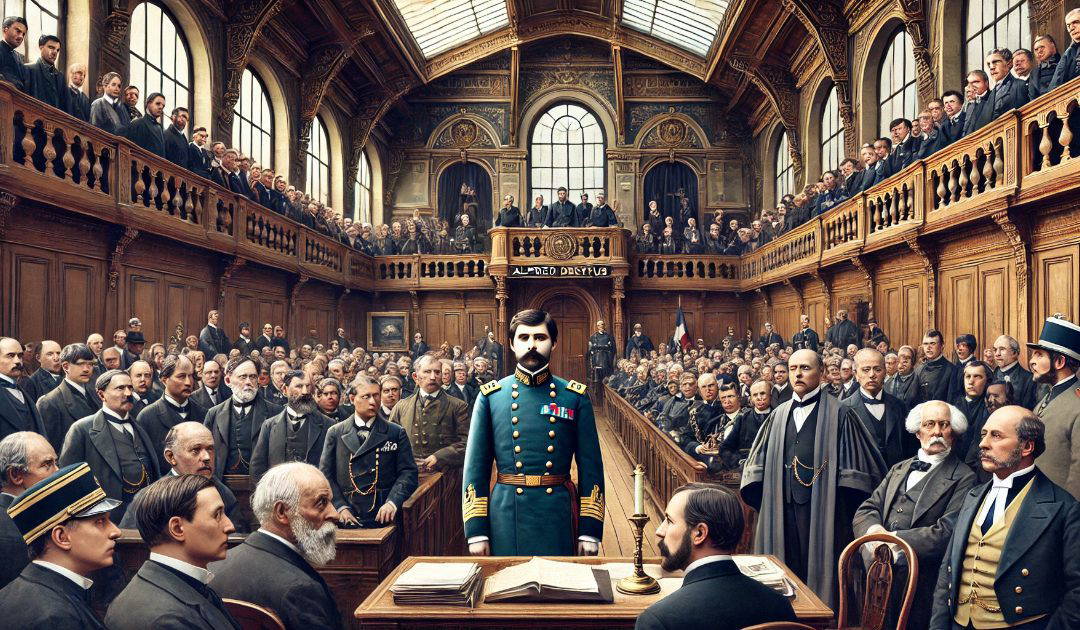The On This Day website tells me that on 5th January 1895 Captain Dreyfus was convicted of treason by a French military court. Encyclopedia Britannica says that the conviction was in December 1894. Never mind, I’ll write about it anyway. The Dreyfus Affair concerned Captain Alfred Dreyfus, a Jewish officer in the French Army, who was wrongfully convicted of treason in. The case became a symbol of the deep-seated anti-Semitism in French society and the failures of the military and judicial systems.
The affair began when military intelligence discovered that sensitive documents had been leaked to the German Embassy. Dreyfus, who had been promoted to captain in the artillery, was arrested based on flimsy evidence, including a handwriting analysis that was later discredited. Despite the lack of concrete proof, he was convicted in a secret military trial and sentenced to life imprisonment on Devil’s Island, a remote penal colony.
The case took a dramatic turn when evidence emerged suggesting that Dreyfus was innocent and that another officer, Major Ferdinand Esterhazy, was the true culprit. However, the military was reluctant to admit its mistakes, partly due to the prevailing anti-Semitic attitudes that painted Dreyfus as a traitor because of his Jewish heritage. The situation escalated when prominent intellectuals, including writer Émile Zola, began to speak out against the injustice. Zola’s famous open letter, “J’accuse…!”, published in 1898, accused the military of a cover-up and called for Dreyfus’s exoneration.
The public outcry intensified, leading to widespread protests and debates about the nature of justice and the role of the military in society. The Dreyfus Affair divided France into two camps: the Dreyfusards, who supported Dreyfus and advocated for his release, and the anti-Dreyfusards, who defended the military and perpetuated anti-Semitic sentiments.
After years of legal battles and public pressure, Dreyfus was finally exonerated in 1906, and he returned to military service. The affair had lasting impacts on French society, leading to significant changes in the legal system and the separation of church and state. It also inspired movements for civil rights and the fight against anti-Semitism in Europe.
I think the first time I read about the Dreyfus Affair was in a Dennis Wheatley book, but I can’t recall which one. It was interesting to learn at the Dartmouth Book Festival that it was Dennis Wheatley who sparked John Suchet’s interest in Historical Fiction, the same is true for me. I wonder if Ferdinand Esterhazy was the inspiration for John Le Carre’s Toby Esterhase?

